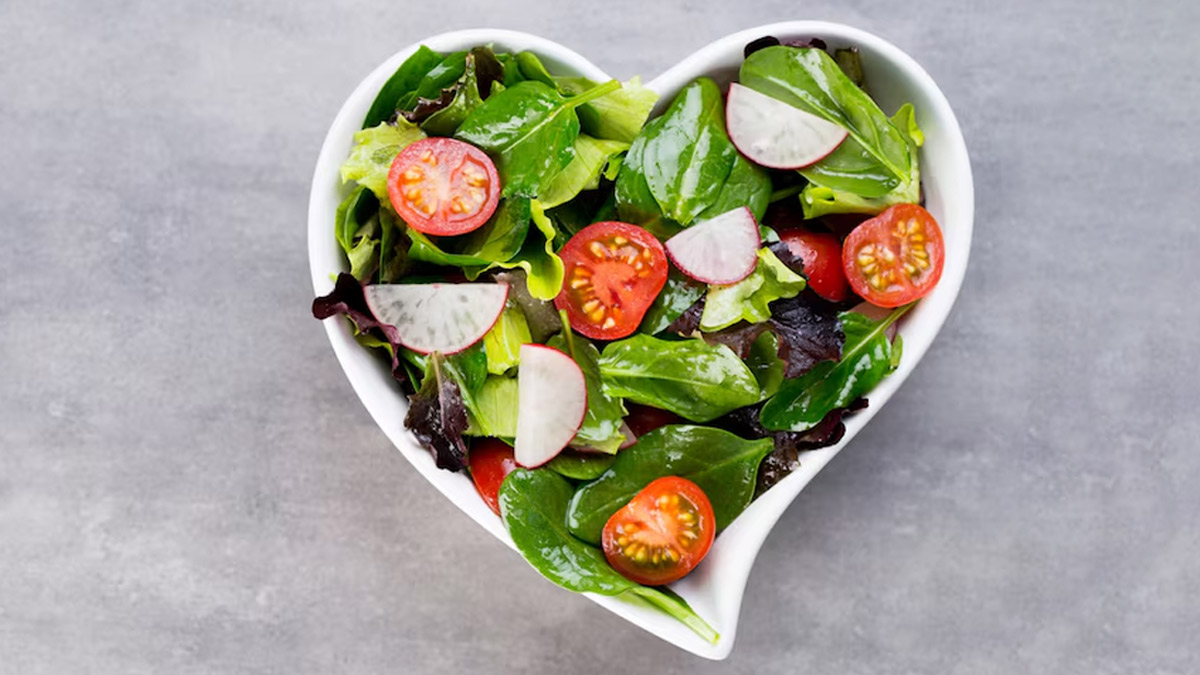
When it comes to healthy eating, salads are often known to be the go-to meal for anyone seeking freshness, nutrition, and balance. But what if there's a simple way to make your everyday salad even more beneficial? This is where a fragrant herb with leaves and a slightly tangy flavour comes that can completely transform your plate. Beyond its refreshing taste, experts suggest that dill is full of nutrients and compounds that support overall health in surprising ways.
Table of Content:-
Benefits of Adding Dill to Salads
Here are seven reasons why dill deserves a space on your salad plate:
1. Boosts Digestion
Dill has traditionally been considered very helpful when it comes to digestion. According to our expert, Dr Anshu Chaturvedi, Head-Department of Dietetics, CK Birla Hospitals, Jaipur, "The essential oils present in dill stimulate digestive juices and enzymes, thus aiding digestion and minimising symptoms like bloating and gas." The carminative properties of this herb make it ideal for those who suffer from indigestion after meals. Adding fresh dill to salads, soups, or a dressing may be a natural way to help foster a healthy gut, with no need to reach for over-the-counter products.
Also Read: Should you eat beetroots boiled or raw? Six Ways to Consume Beets

2. Rich in Antioxidants
Your salad may be filled with colourful veggies already, but fresh dill also incorporates antioxidants in it. This herb contains powerful compounds like flavonoids, terpenoids, and tannins, which help fight against oxidative stress and protect cells from being damaged by free radicals. Over time, this might even contribute to improved skin health, reduced inflammation, and generally better immunity. “Regularly consuming antioxidant-rich foods like dill can lower the risk of chronic diseases such as heart disease and diabetes,” added Dr Chaturvedi.
3. Supports Bone Health
Dill is also a good source of calcium, which is very important for maintaining bone strength and density. For those who don't have enough dairy intake or limited calcium in their nutrition, adding dill to your daily salads can provide a small but meaningful boost. Aditionally, the herb contains magnesium and phosphorus, which both work alongside one another in maintaining healthy bones and preventing the risk of osteoporosis.
4. Helps in Regulating Blood Sugar Levels
Research suggests that dill could have a role in blood sugar regulation. According to Dr Chaturvedi, “Some studies show that dill extract helps balance insulin levels and aids glucose metabolism.” Consuming the herb as part of your diet-especially in its fresh variety-could help with insulin resistance or simply keep your energy levels stable during the day.

5. Natural Immunity Booster
Dill is also rich in vitamin C, which works to strengthen the immune system. The herb possesses antimicrobial and antiviral properties that enhance the action of infection-fighting mechanisms within the body. A diet frequently accompanied by dill can therefore be the simplest way to control and manage seasonal illnesses like colds and flu.
Also Read: How Your Raw Vegetable Salad Maybe Causing More Harm Than Good!
6. Rejuvenates and Purifies
Besides its nutritional profile, the unique flavour and aroma of dill refresh your palate and uplift your mood. It also has mild diuretic properties, which means it can help the body get rid of extra salts and toxins. "Hydration and detoxification are very important for overall wellness, and dill aids this process naturally when consumed regularly," said Dr Chaturvedi.
7. Promotes Heart Health
Dill contributes to heart health by reducing bad cholesterol levels (LDL) and encouraging the production of good cholesterol (HDL). Its anti-inflammatory and antioxidant properties protect arteries and blood vessels from oxidative damage, decreasing the risk of atherosclerosis.
Bottomline
From improving digestion and strengthening bones to boosting immunity and heart health, dill is more than just a garnish; in fact, it's a powerhouse of nutrition. Adding this herb to your daily salads is an effortless way to upgrade your health and energy levels.
Also watch this video
FAQ
1. Can I use dried dill instead of fresh in salads?
It is possible to use dried dill, but fresh dill has a much stronger flavour and more nutritional value. If using dried dill, start with smaller quantities because it is highly concentrated.2. How much dill can I consume daily?
A tablespoon or two of fresh chopped dill added to salads or other dishes is enough to reap health benefits without overpowering the flavour.3. Is dill safe for everyone to consume?
Generally, yes. However, people with known allergies to herbs in the same family, like fennel and celery, should consult with a doctor before adding dill to their diet.
How we keep this article up to date:
We work with experts and keep a close eye on the latest in health and wellness. Whenever there is a new research or helpful information, we update our articles with accurate and useful advice.
Current Version
Nov 05, 2025 10:05 IST
Published By : Tanya Srivastava